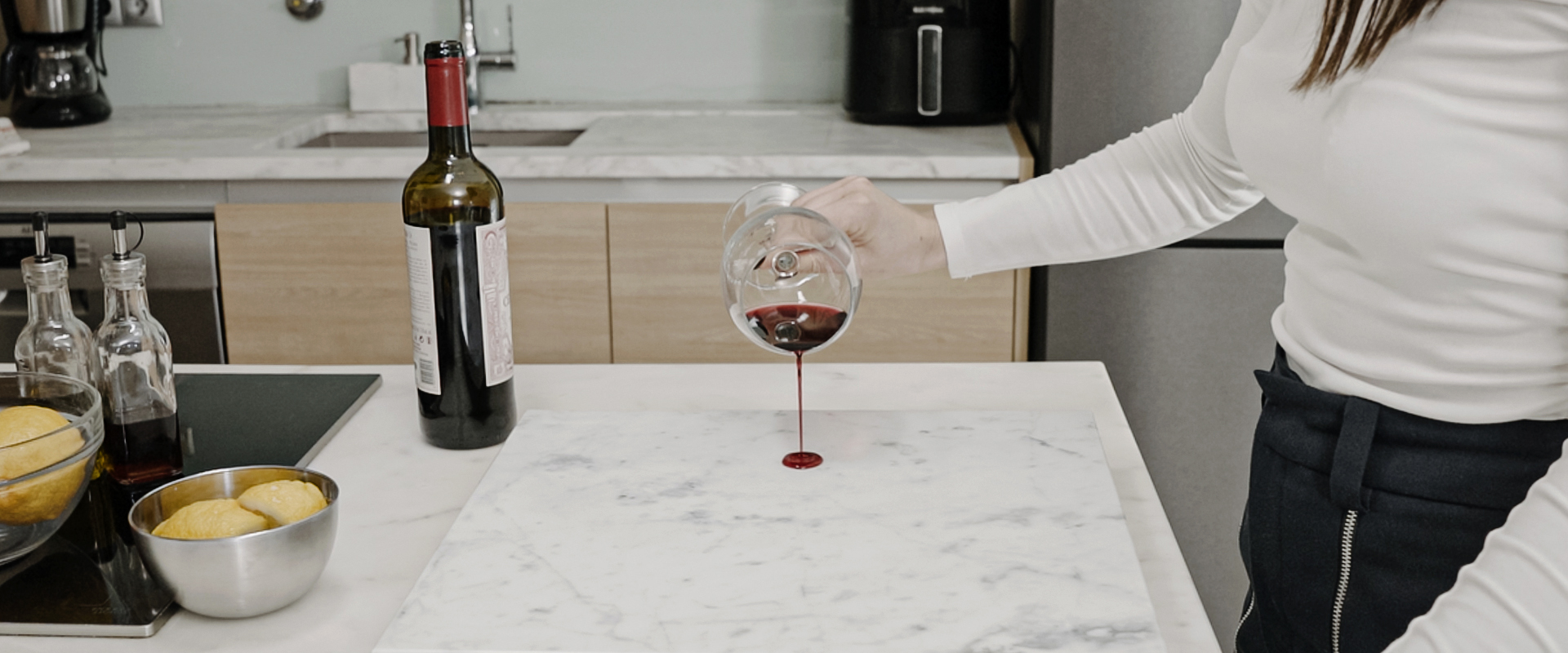Due to marble characteristics, you must avoid certain solutions (like acids, coffee, alcohol) coming in contact with the marble. This also applies to cleaning products (including vinegar, lemon juice or other cleaners containing acids).
To minimize the effect of etching and staining, you should try protecting this beautiful and natural material by putting a coaster under items such as glasses placed on the marble surface, especially if they contain alcohol or acid, as well as renewing the coating whenever you notice the surface needs refreshing to keep your marble looking its absolute best.
To clean the marble surface use warm water and a non-abrasive sponge or soft cloth. It is the best method for cleaning, but it will not remove etching or stains that are permeated on the surface.
What to avoid
- Rigid protective bases (ceramic, metal, or other solid materials) that may scratch the stone surface.
- Bleach, ammonia, general-purpose cleaners or abrasive cleaning agents, abrasive paper or steel wool.
- Cleaners containing acid, such as bathroom cleaners, grout cleaners, tub cleaners or tile cleaners.
- Alkaline cleaners not specifically formulated for natural stone.
- Pools of water on the marble surface, as they can leave stains.
What can be used
- Special products for stone surfaces that mitigate etching and avoid absortion.
- Professional refinishing to remove etch marks and restore the stone’s natural finish (recommended).
- For manual cleaning, use a soft scrub pad to gently remove stains, then wipe with a cloth to remove dust.
- A quality stone sealant, following the manufacturer’s instructions, to restore protection in affected areas (available at most home improvement centres).

